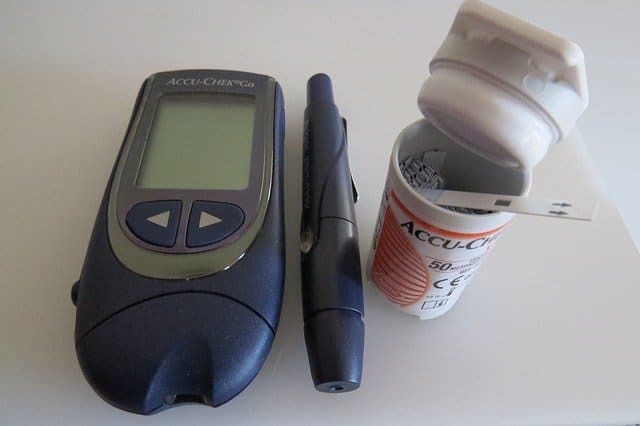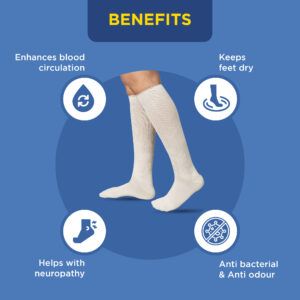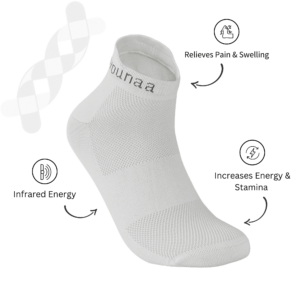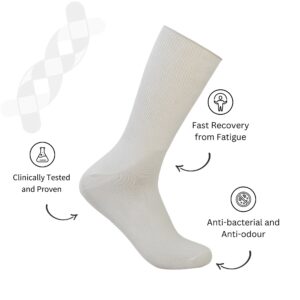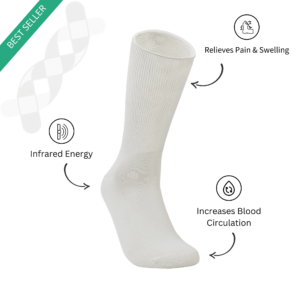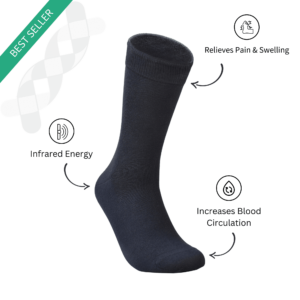Different people with Type 1 diabetes have different symptoms. Some gain a lot of weight while others lose it. So, when their body gets insulin, those who gained excess weight tend to lose it again or come back to their normal weight while others start to gain weight.
For those who are gaining weight, you may be wondering, ‘does insulin lead to weight gain’? Let’s find out!
Does Insulin Lead To Weight Gain?
If you have experienced weight gain after taking insulin, it isn’t the insulin that is directly causing the weight gain but a number of other factors. Let us look at 4 reasons why you may experience weight gain after starting Insulin:
1. Cells Are Finally Getting Glucose
When you are not getting treatment for type 1 diabetes, the glucose in your blood moves aimlessly without reaching the deserving cells in the body.
The insulin allows the glucose to reach the starving cells. Once the cells get the right amount of glucose they are finally able to work and release energy. This may be why you are gaining weight.
2. Fats Cells Get Nourishment
Fat cells require glucose as energy, the problem is they are usually the first to get glucose before the other organs. This may also read to weight gain.
3. Cells Tend To Overstock
Before you were diagnosed with diabetes, your cells were starved and dehydrated. Now that they are finally getting sugar and the kidneys are not overworked, water is also reaching the cells.
So, as a safety measure, the cells tend to overstock on glucose and water. In this case, the weight gain is caused mostly because of water retention and its usually temporary.
4. You Are Eating More Than You Need
Usually, when your diabetes is undiagnosed, high blood sugar feels pretty normal. So, when you start getting insulin, your blood sugar levels drop to a normal range. The normal range may seem too low for you because you are not accustomed to it. So, you may eat more than you need, thinking that it may bring your sugar levels to the right range.
Similarly, once your diabetes is under control you must reduce calorie intake because your body is finally using all the calories you are giving it hence you don’t need access. But many Type 1 diabetes don’t reduce calories after starting on insulin and this leads to significant weight gain.
While it is possible for you to gain weight when you start taking insulin, it is not a reason for you to stop or skip insulin doses. Remember that if your doctor prescribed insulin, it is not an option. You must take it for your health.
If your weight gain is concerning you, you can talk to your doctor and make dietary changes. Here are some 4 things you can do to keep your insulin within range.
1. Add Exercises
A mix of cardio and weight training helps you burn the excess glucose in your blood. It also helps you burn fats hence lesser fat cells receive glucose for energy.
When you add exercises, you may need lesser insulin because the workout is burning some of the sugar for you. However, with any changes in the insulin dose, you must talk to your doctor and get it cleared with them. Don’t try to change the dose on your own especially if you have newly been diagnosed with type 1 diabetes.
Always wear proper footwear while exercising to reduce problems associated with diabetes feet.
2. Diet
Since your weight gain may simply be because you are eating more than what is required, you may have to make dietary changes. Remember that reducing calories is not the same as skipping a meal. You should never skip meals if you have Type 1 diabetes.
Instead, you can control the size of your potions. Make sure you are having a healthy meal each time. This means that you should have a lot of vegetables in your diet followed by a small portion of carbohydrates and a healthy protein.
You may need to adjust your meal timings according to your insulin doses and eat smaller portions more frequently in the day.
3. Give It Time
It takes time for the body to get adjusted to change even if it is a good change. Once the cells realise they have a constant supply of glucose and water, they will not overstock on nutrients. This will reduce water retention and your body weight will slowly come back down.
Don’t worry if your weight fluctuates for the first few months. We know that because of a social stigma there is a very negative association with weight gain. Remember that it is more important to control your blood sugar than your weight. So give it some time and your body will surely re-adjust.
4. Talk To Your Doctor
Make sure that your health care professional is in the loop in every step along the way. Managing blood sugar is not easy and sometimes you need an expert’s help.
Instead of skipping a meal or skipping a dose, you should talk to your doctor, chart out your entire routine and make changes as you go. Once you put in the right amount of nourishment in your body along with the proper dose of Insulin you will slowly reach a healthy weight range.

